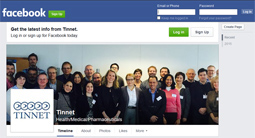Short Term Scientific Missions (STSMs) enable TINNET participants to visit an institution or laboratory in another country in the framework of the Action. Their main assumption is to support the individual mobility, strengthen the existing networks and foster collaborations between scientists from different countries. Each mission should specifically contribute to the scientific objectives of the Action (which in our case means it should refer to the different tinnitus subtypes). STSMs create a great possibility for applicants to learn new techniques or gain access to specific instruments and methods not available in their own institutions.
The STSM Officer has been appointed by the MC and is responsible for the setup of Working Group-independent COST tasks related to scientific communication for maintenance of a COST Action specific website and its regular update, and for the organization of the communication between the SC and the WGs.
STSM Announcements
Open Announcements
The COST-TINNET Action ended on April 10, 2018. Therefore we don't announce STSMs any more
STSM Reports
Reports for Grant Period 4 (May 2017 - April 2018)
Reports for Grant Period 3 (May 2016 - April 2017)
Reports for Grant Period 2 (June 2015 - April 2016)
Reports for Grant Period 1 (June 2014 - May 2015)
Details about STSMs
How long does the STSM last?
Typically one scientific mission lasts 5 – 90 days, Early Stage Researchers (ESR – researcher in the start phase of his/her career with at least the PhD and up to 8 years of experience after the PhD) can extend the duration of the mission beyond the 90 days (91-180 days). All STSMs need to be carried out in their entirety within a single grant period (now we are in the forth - and last - Grant Period, which means that current missions must take place between May 2017 and April 2018).
Will I get financial support?
Yes. The grant size depends on the duration of your stay and the average living costs in the country of your choice. A maximum EUR 2 500 in total can be afforded to the regular STSM grantee and EUR 3 500 to the ESR STSM grantee (for a duration of more than 91 days).
Check if you can apply:
If you are a postgraduate student, an Early Stage Researcher or an employee from a TINNET- affiliated institution (e.g. a clinician working there with people suffering from tinnitus) or legal entity, you are in the right place.
Please try to find your country in the list below:
| Participating Countries | Near Neighbour Countries (NNC) | International Partner Countries (IPC) - RTSM |
| Austria, Belgium, Bulgaria, Cyprus, Czech Republic, Denmark, Finland, France, fYR Macedonia, Germany, Greece, Iceland, Ireland, Israel, Italy, Lithuania, Malta, Netherlands, Norway, Poland, Portugal, Romania, Serbia, Slovenia, Spain, Sweden, Switzerland, Turkey, United Kingdom | Albania, Algeria, Armenia, Azerbaijan, Belarus, Egypt, Georgia, Jordan, Lebanon, Libya, Moldova, Montenegro, Morocco, Palestinian Authority, Russia, Syria, Tunisia and Ukraine | Argentina, Australia, New Zealand, South Africa |
If your country belongs to the Participating Countries or the NCC, you can apply for the STSM. If you are from the IPC you should choose so called reciprocal mission – RSTSM (see description below). In situation when your country is not in a list, you are very welcomed to join the Action (for more details see "Becoming a Participant").
What are RSTSMs?
Reciprocal STSMs are missions, which are aimed at enhancing the potential impact of global networking and fostering knowledge creation and exchange between scientists in COST Actions with host institutions in International Partner Countries (IPC) that benefiting from a reciprocal agreement with COST (that means Argentina, Australia, New Zealand and South Africa). Reciprocal missions are possible only between Participating Countries and IPC.
How to apply?
In the beginning you should contact the Host Institution. You can find the actual STSM Announcements on our website. The STSM Candidate Institutions may be also interested in cooperation with you, express simply your interest. When you obtain the written agreement of host, you can submit your online application https://e-services.cost.eu/stsm. Send the completed file as e-mail attachment together with the necessary supporting documents (CV, full work plan, list of publications, motivation letter, letter of support from the home institution etc.) to the STSM Team (
After the STSM
Your mission is completed. The last task for you is to submit the short scientific report (send it to
- Purpose of your mission
- Description of the work carried out during a mission
- Description of the main results obtained
- Future collaboration with the host institution (if applicable)
- Foreseen publications/articles resulting from a mission (if applicable)
- Confirmation by the host institution of the successful execution of your mission
- And other comments (if any).
Please remember that this is a very important step. The failure to submit or a submission exceeding 30 days will effectively cancel the grant.
Important remarks
Grantees must make their own arrangements for all health, social, personal security and pension matters. Take care of this before your departure.
During an STSM neither the MC, nor the COST Office nor the Grant Holder may be considered as an employer.
Contact:
If you have any further questions, please do not hesitate to contact us.
Małgorzata Wrzosek –
![]() Download this page as a PDF file
Download this page as a PDF file


